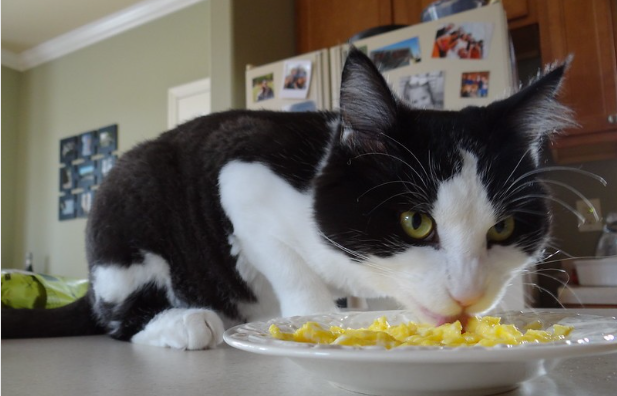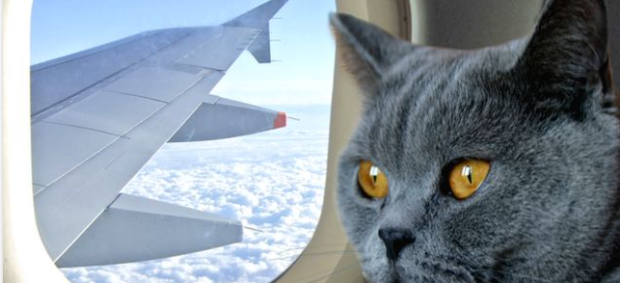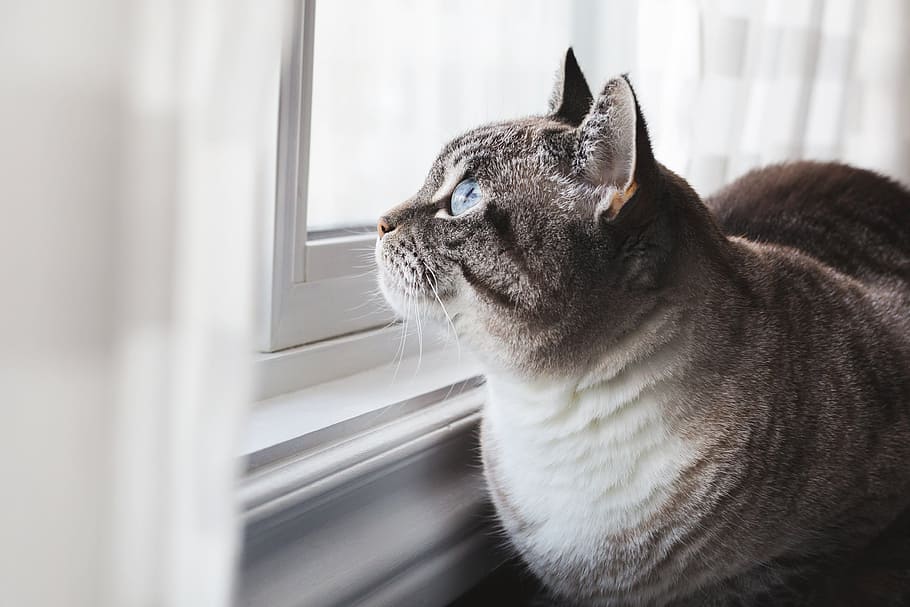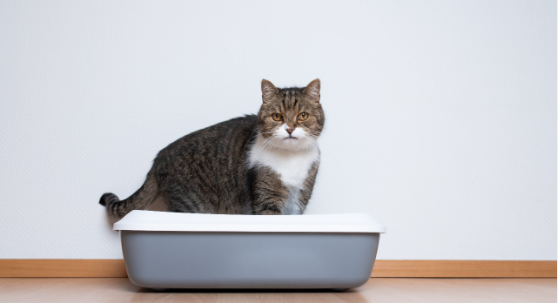Can cats eat scrambled eggs?
Cats are known to have a discerning palate when it comes to food. They have specific dietary needs and restrictions, making it crucial for pet owners to be aware of what foods are safe for their feline friends.
One common human food that people wonder about feeding their cats is scrambled eggs. This article aims to provide an answer to the question “Can cats eat scrambled eggs?” while also delving into the nutritional value of eggs for cats in general.
Explanation of the topic
Eggs are a protein-packed food item that can provide several health benefits for cats. However, pet owners need to understand how much and how often they should feed their cats scrambled eggs, as too much or too frequent consumption can lead to health issues such as obesity and digestive problems.
Brief overview of the nutritional value of eggs for cats
Eggs contain essential nutrients like protein, vitamins (A, D, E), minerals (iron, calcium), and healthy fats. The protein content in eggs is especially beneficial for cat health as it helps build strong muscles and supports tissue repair. The vitamins and mineral content found in eggs also play a critical role in improving overall feline health.
Importance of knowing what foods are safe for cats to eat
As obligate carnivores, cats’ digestive systems are uniquely designed to consume meat-based diets. Human food items may not always be suitable or safe for felines due to various reasons such as toxicity or high-fat content leading to obesity. Therefore it is vital that pet owners have an understanding of what foods can be safely fed to their cats so they can maintain optimal health and well-being.
Can Cats Eat Scrambled Eggs?
The question many cat owners have is whether or not it is safe to feed their cats scrambled eggs. The answer is yes, cats can eat scrambled eggs as part of a balanced diet. However, it is important to note that cats should only consume eggs in moderation, as too much of them can lead to health problems like obesity and digestive issues.
The Benefits of Feeding Scrambled Eggs to Cats
Scrambled eggs are a good source of protein for cats and can be beneficial for their overall health. Protein is essential for cats because it helps build and repair tissues, supports the immune system, and contributes to healthy skin and coat.
In addition to protein, scrambled eggs also contain healthy fats such as omega-3 fatty acids that are important for maintaining good heart health and reducing inflammation. When feeding scrambled eggs to your cat, it is best to cook them without any added salt or seasoning.
Adding salt can cause electrolyte imbalances in your cat’s body which may lead to dehydration or kidney damage. You may also choose to mix in other healthy ingredients such as steamed vegetables or fish oil for added nutritional value.
Risks Associated with Feeding Too Many Eggs To Cats
While there are benefits to feeding your cat scrambled eggs in moderation, overfeeding them can lead to several potential risks. One risk is obesity since too much fat intake can cause weight gain which may increase the risk of other health issues like diabetes and cardiovascular disease. Overconsumption of raw egg whites by cats can lead to biotin deficiency which causes hair loss, dermatitis (inflammation of the skin), and poor growth rates among kittens.
Raw egg whites also contain avidin—an enzyme inhibitor—that decreases absorption of biotin by the body when ingested excessively. Feeding too many eggs at once could also lead to digestive issues such as diarrhea or vomiting.
As with any new food, start by feeding your cat a small amount of scrambled eggs first before increasing the amount gradually over time. If you notice any adverse side effects, discontinue feeding them to your cat immediately and seek veterinary advice if necessary.
Nutritional Value of Eggs for Cats
Protein content in eggs and its importance for cat health
Eggs are an excellent source of protein, which is important for maintaining a cat’s lean muscle mass. The protein found in eggs is also easily digestible, making it an ideal source of protein for cats. In fact, one large egg contains approximately 6 grams of high-quality protein, which is the equivalent of approximately 10% of a cat’s daily protein requirements.
Cats that do not consume enough high-quality protein may experience muscle wasting, weakness, and other serious health problems. Therefore, incorporating eggs into a feline’s diet can help support their growth and development over time.
Vitamins and minerals found in eggs that are beneficial for cats, such as vitamin D and iron
Eggs are also rich sources of various vitamins and minerals that can benefit feline health. For instance, they contain vitamin D which helps to promote healthy bone growth in cats just as it does with humans.
Iron is also plentiful in eggs, which is an essential mineral required to form hemoglobin in red blood cells. Without adequate iron intake from their diet (such as from consuming eggs), cats may develop anemia – a condition where the body does not have enough red blood cells to properly deliver oxygen to various tissues throughout the body.
Comparison between raw and cooked eggs for cat consumption
While both cooked and raw eggs offer similar nutritional benefits to cats, there are some important differences between them when it comes to how they should be prepared before serving them up on your feline friend’s plate. For instance: – Raw egg whites contain avidin – a substance that binds biotin (a B-vitamin) which can lead to skin issues over time.
– Raw egg yolks contain enzymes that can interfere with the absorption of certain vitamins such as vitamin B6, which is essential for nervous system health. – Cooking eggs makes them safer by eliminating the risk of salmonella and other harmful bacteria that can be present in raw eggs.
Therefore, it’s important to always cook eggs thoroughly before feeding them to your cat. Additionally, it’s important to only feed your cat cooked eggs in moderation – as excessive consumption can lead to weight gain and other health issues down the line.
Can Cats Eat Scrambled Eggs?Preparing Scrambled Eggs for Cats
When preparing scrambled eggs for your cat, it is important to keep in mind a few best practices. First and foremost, the eggs should be cooked thoroughly to avoid any risk of salmonella or other harmful bacteria.
Overcooked eggs are also not recommended as they can be hard on a cat’s digestive system. The ideal cooking method is to lightly cook the eggs until they are fully set but still moist and tender.
Another consideration when preparing scrambled eggs for cats is the addition of salt or other seasonings. Cats have a very different palate than humans and do not require or enjoy the same flavors as us.
Salt can be particularly harmful to cats and should never be added to their food. Instead, consider adding small amounts of herbs or spices that are safe for feline consumption such as parsley, thyme, or turmeric.
Ingredients That Can Be Added to Scrambled Eggs to Make Them More Nutritious
To make scrambled eggs more nutritious for your cat, you can add a variety of ingredients that provide additional vitamins and minerals. One popular choice is shredded cheese which adds protein and calcium to the dish.
Other ingredients such as chopped spinach or kale provide fiber and antioxidants while diced chicken or turkey offer additional protein. If your cat has specific dietary needs such as weight management or digestive issues, you can adjust the ingredients accordingly.
For example, if your cat needs a low-fat diet, skip the cheese and use egg whites instead of whole eggs. If your cat has trouble digesting certain foods, avoid adding anything that may upset their stomach such as onions or garlic.
Frequency at Which Scrambled Eggs Should Be Fed to Cats
While scrambled eggs can be a healthy addition to a cat’s diet in moderation, it is important not to overdo it. As a rule of thumb, scrambled eggs should not make up more than 10% of your cat’s daily caloric intake. This means that for an average 8-pound cat, no more than one scrambled egg per week is ideal.
It is also important to note that scrambled eggs should not be the sole source of nutrition for your cat as they do not provide all the necessary nutrients that cats require. A balanced diet consisting of high-quality commercial cat food supplemented with occasional treats such as scrambled eggs is the best approach.
Other Foods That Are Safe For Cats To Eat
While scrambled eggs can be a safe and healthy treat for cats, it’s important to remember that they should only be given in moderation. There are, however, other human foods that can be safely fed to cats in small quantities. Here are some examples:
– Cooked chicken or turkey: These meats are a great source of protein for cats and can be added to their regular meals as a treat. – Plain cooked fish: Fish is another good source of protein and omega-3 fatty acids, but should only be given occasionally due to its high levels of mercury.
– Small amounts of fruits and vegetables: Some cats enjoy small bites of fruits or veggies like blueberries or green beans, but they should never make up a significant portion of their diet. It’s important to note that any human food given to a cat should always be introduced gradually and in small quantities.
This will help prevent digestive upset or allergic reactions. Additionally, if your cat has any health issues or is on medication, it’s best to check with your veterinarian before giving them any human food.
The Foods Cats Should Never Eat
While there are some human foods that can be safely fed to cats in moderation, there are also many foods that should never be given to them. Here is a list of some common foods that are toxic or harmful to cats: – Chocolate: Chocolate contains theobromine which can cause vomiting, diarrhea, seizures, and even death in cats.
– Onions and garlic: These foods contain compounds that can damage red blood cells in cats and lead to anemia. – Grapes and raisins: Even small amounts of grapes or raisins can cause kidney failure in some cats.
Other dangerous foods for cats include alcohol, caffeine, avocadoes, nuts (especially macadamia nuts), dairy products (due to lactose intolerance), and anything containing xylitol (a common sugar substitute). If your cat has ingested any of these foods or shows any signs of illness, seek veterinary care immediately.
Conclusion
The Benefits of Feeding Scrambled Eggs to Cats
Overall, scrambled eggs can be a healthy addition to your cat’s diet when fed in moderation. The protein and healthy fats found in eggs can provide numerous health benefits for cats, including improved coat and skin health, better digestion, and increased energy levels. However, it is important to remember that too many eggs can lead to obesity and other digestive issues.
When feeding scrambled eggs to your cat, be sure to follow best practices for preparation, including using fresh ingredients and avoiding seasoning or adding other ingredients that may be harmful to cats. Additionally, consider introducing other human foods into your cat’s diet that are safe for them to eat in moderation for a more diverse range of nutrients.
Why It Is Important To Know What Foods Are Safe For Cats To Eat
As responsible pet owners, it is our duty to ensure that we are providing our cats with a healthy and balanced diet. Knowing what foods are safe for cats to eat can help prevent potential health issues or even life-threatening emergencies caused by accidental ingestion of toxic foods. By taking the time to educate ourselves on the nutritional needs of our feline friends and understanding what foods they can safely consume, we can help them live longer and healthier lives.
So next time you’re tempted to share your meal with your cat or offer them a treat from the table, double-check that it won’t harm their health before doing so. While cats can technically eat scrambled eggs as part of their diet in moderation, it is important to keep in mind the potential risks associated with overfeeding or feeding improperly prepared eggs.
As with any changes to your pet’s diet or feeding routine, consult with your veterinarian beforehand for guidance specific to your individual cat’s needs. By being mindful of what we feed our furry companions and providing them with a balanced and nutritious diet, we can help them thrive for years to come.





Leave a Reply